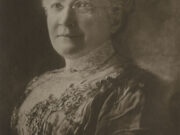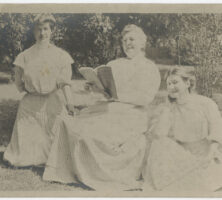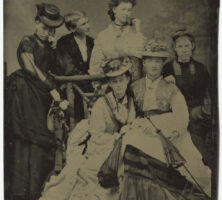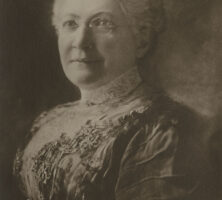Mary Ellen Peters Black (known throughout her life as “Nellie”) personified the early club woman movement in the South. Black dedicated her life to organizing women for the purposes of benevolence, self-improvement, and social and civic reform.
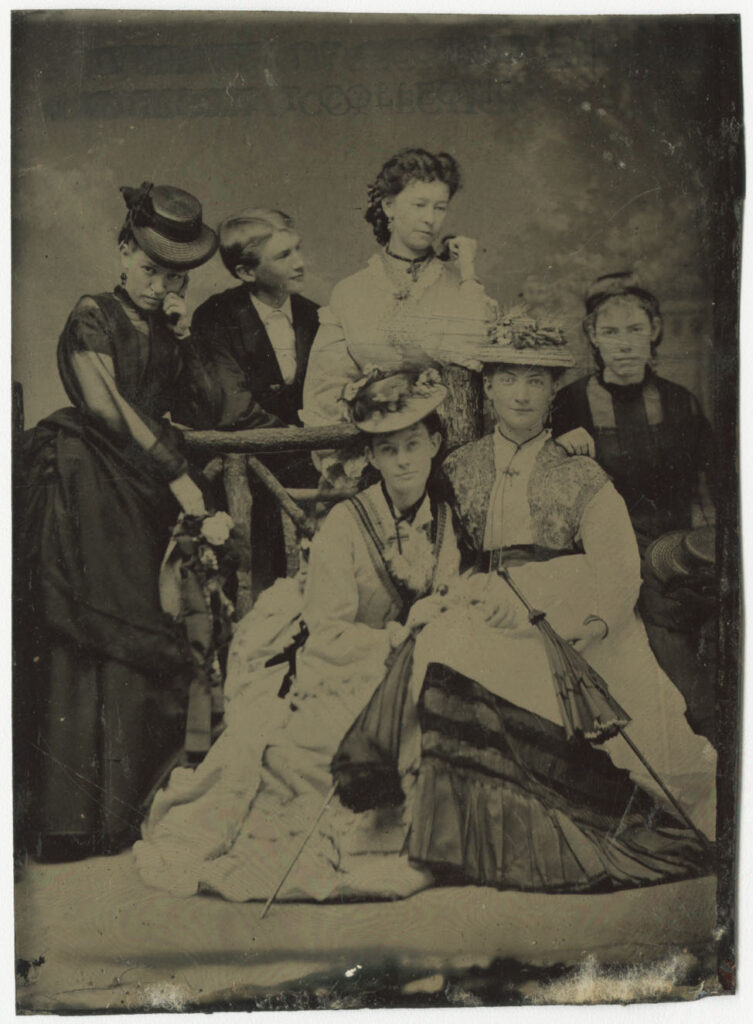
Courtesy of Hargrett Rare Book and Manuscript Library, University of Georgia Libraries.
Nellie Peters was born in Atlanta on February 9, 1851, the eldest of nine children. Her father, Richard Peters, emerged from the Civil War (1861-65) to become a financial and civic leader in postwar Atlanta. After graduating from finishing school, Nellie joined her family in their philanthropic and charitable endeavors. Devoutly religious and a staunch Episcopalian, she taught Sunday school and organized the city’s first mission. At age twenty-six she married George Robison Black, a congressman from Screven County. The couple had three children before George Black died in 1886.
Nellie Black belonged to numerous civic and social organizations, including the Every Saturday Club, Pioneer Club of Atlanta, Colonial Dames, Daughters of the American Revolution, and United Daughters of the Confederacy. She held various positions of leadership in the Women’s Auxiliaries of the Episcopal Dioceses of Georgia and Atlanta. Through her membership in the Atlanta Woman’s Club, Atlanta Federation of Women’s Clubs, and the Georgia Federation of Women’s Clubs (GFWC), Black focused on social and municipal engineering. She served on the founding board of the King’s Daughters Hospital (the first free hospital in Atlanta) and the executive committee of the Woman’s Building at the 1895 Cotton States and International Exposition.
Intent on increasing statewide educational opportunities, Black lobbied the state legislature for compulsory education laws and the admittance of women to the University of Georgia. An ardent supporter of early childhood education, she served as president of the Atlanta Free Kindergarten Association for twenty years and helped establish numerous kindergartens throughout the city. Although unsuccessful at the state level, Black persuaded the public school system in Atlanta to incorporate kindergartens into their schools in 1919.
In 1897 Black assumed management of the 1,400-acre Peters family farm in Gordon County. Interested in agricultural education and reform, she became one of the leading proponents in Georgia of the Country Life Movement, a rural reform movement inspired by U.S. president Theodore Roosevelt’s Country Life Commission. In 1914 Black carried her crusade for agricultural diversification into the public forum when she chaired a series of rallies sponsored by the GFWC. Working with the Georgia Department of Agriculture, she toured each of the state’s congressional districts, encouraging farmers to diversify their crops and decrease their dependence upon cotton revenues and imported foodstuffs.
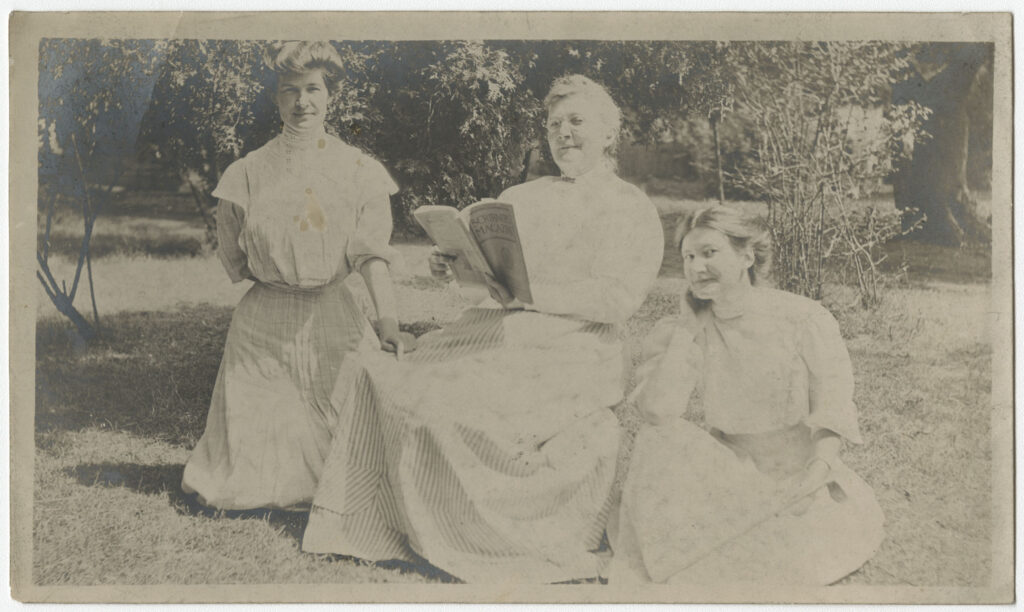
Courtesy of Hargrett Rare Book and Manuscript Library, University of Georgia Libraries.
During her three terms as president of the GFWC, Black vigorously supported U.S. president Woodrow Wilson’s thrift and conservation campaigns. In her official capacity as a representative for the U.S. Department of Conservation during World War I (1917-18), she organized canned-food drives to benefit military hospitals. Black also served as president of the Conference of Southern Women, director of the School Garden Army of Georgia, and honorary chair of the Georgia Division of the Women’s Council of National Defense.
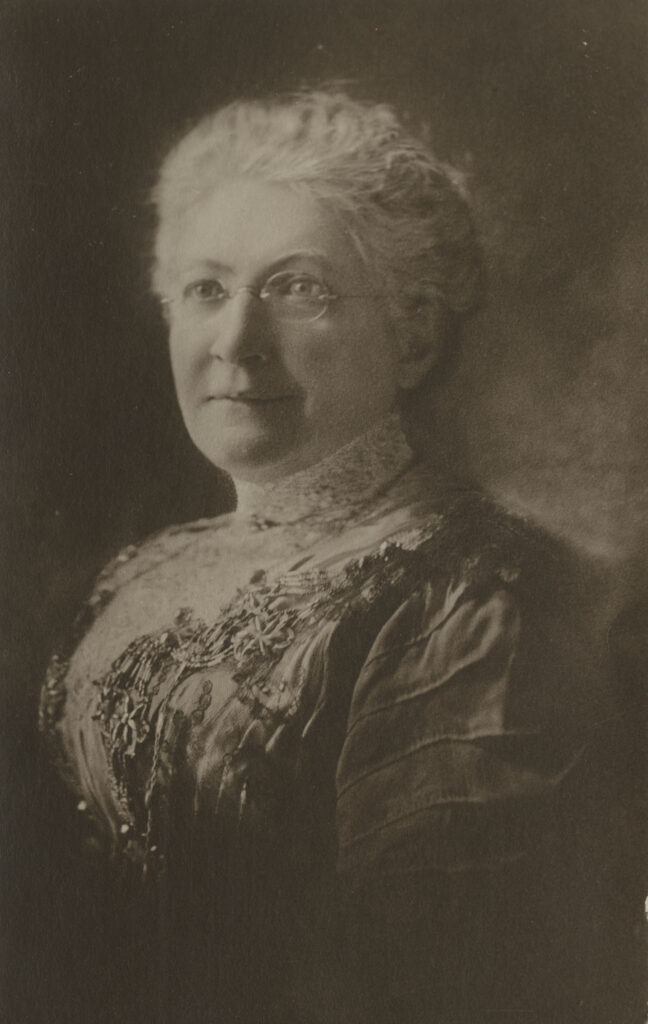
Courtesy of Hargrett Rare Book and Manuscript Library, University of Georgia Libraries.
Upon her death in 1919, newspapers across the state praised Nellie Black’s service. The Atlanta Journal noted that “her name was a synonym for charity, for gentleness of spirit, for love of humanity, for constructive citizenship. No man or woman in the last century has exerted a stronger influence for the uplift and advancement of the state.” One editor claimed that “had [Black] been a man she would have been in the United States Senate.” In 1998 Black was inducted into Georgia Women of Achievement.


